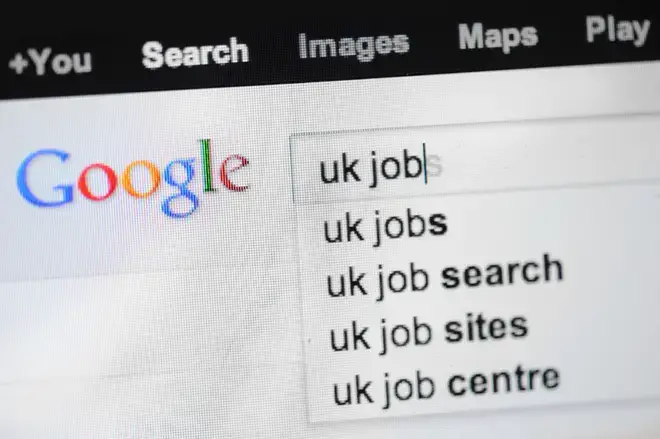– Data exclusively shared with LBC shows that new job listings are down 23% compared to March 2024.
– Analysis by recruitment giant Reed.co.uk also shows a decrease in new postings in 89% of sectors and 92% of regions across the UK.
– Revelations provide perhaps clearest snapshot yet of the effect of Labour’s increase in Employer National Insurance on the jobs market in the UK
The number of new job listings in the UK economy has plummeted by nearly a quarter in the last year, shocking new data shared with LBC has revealed.
The devastating findings are likely to pile further pressure on the Chancellor after the spending watchdog halved the UK’s anticipated economic growth for the coming year amid concerns about the increase to employer national insurance, which came into effect yesterday.
As part of their monitoring of the jobs market, Reed.co.uk, which handles 30 million job applications per year, tracks the listing of new positions on its website and analyses how the landscape compares to previous years.
The recruitment giant’s data, provided exclusively to LBC, shows a 23% decrease in the number of new jobs being uploaded to their site across March 2025 when contrasted with the same month in 2024, likely reflecting the additional costs faced by businesses and the uncertainty caused by President Trump's tariffs.
In October’s Budget, the Chancellor announced measures which have been criticised by industry groups for hammering businesses’ finances.
The changes included an increase to the national insurance contributions paid by businesses, which rose from 13.8% to 15%, as well as lowering the point at which companies must start NICs for their staff to £5,000 per employee.
Addressing the criticism of the decision in a recent interview with LBC’s Nick Ferrari, the Chancellor Rachel Reeves stressed that the measure was necessary to plug a £22 billion shortfall in the public finances, and pointed to “record investment” in the form of £60bn secured for the UK economy at the government’s investment summit last year.
However, businesses across the country have warned that the rise in national insurance contributions could result in them scaling back their recruitment plans.
The British Chambers of Commerce have warned that businesses ‘are sitting on a powder keg of costs’, referring not only to the NICs rise, but also additional expenses that could emerge as a result of Labour’s Employment Rights Bill, which is set to introduce reform to areas such as statutory sick pay.
Retail and hospitality are two sectors which have been highlighted as particularly vulnerable to the increase that came into effect yesterday.
The British Retail Consortium has cautioned that 160,000 part-time jobs could be at risk.
Meanwhile, Kate Nichols, chief executive of Hospitality UK, which represents about 130,000 pubs, restaurants and bars, described the move to increase NICs contributions as the “biggest regressive tax change” she’s seen in her 30 years in the industry.
Today’s data is arguably one of the clearest snapshot yet of how the additional costs have impacted firms’ recruitment plans, as well as the breadth of sectors which have been affected.
Alarmingly for the government, Reed’s numbers show the number of new postings fell in 89% of the sectors they monitor when compared with March 2024, and an even more dramatic fall of 92% when the measure was broken down by region.
Whilst there were more encouraging signs in the month-on-month data, which showed a slight increase in postings from February’s figures, the revelations are likely to compound pressure on the government from both business leaders and opposition parties.
Speaking to LBC last week, for example, Conservative leader Kemi Badenoch warned that many businesses face either “lower[ing] wages, stop[ping] hiring and in some extreme cases stop business altogether”.
In response, a Treasury spokesperson said: “We are a pro-business government, and we know the vital importance of small businesses to our economy and have already achieved a great deal in a short period of time, including protecting the smallest businesses from the employer National Insurance rise and late payments, protecting 250,000 retail, hospitality and leisure business properties from paying full business rates and capping corporation tax.
“We delivered a once-in-a-Parliament budget that took necessary decisions on tax to stabilise the public finances, including the NHS which has now seen waiting lists fall five months in a row.
“We are now focused on creating opportunities for businesses to compete and access the finance they need to scale, export and break into new markets."

